The Hopi name derives from the name Hopituh Shi-nu-mu, which translates into “The Peaceful Little People”. Their days consist of celebrating a beautiful religion, which is based upon helping others. The education of this religion begins during early childhood, with the gifting of tithu dolls. These dolls represent the katsinum, and are meant as a symbolism for life’s milestones. The children do not wish to play with the dolls; they do not even see them as toys. These dolls serve as reminders of the katsinum, and each doll holds deeply sentimental value.
The dolls also participate in celebrations of The Hopi Ceremonial Calendar. Almost each month, there is a celebration of the calendar, a holiday, if you will. Before each ceremony, The Hopi pray at th altar, offering sacred goods like tobacco and corn. The events have several ceremonial dancers, who send prayers to spirits before each dance. The Chief announces the ceremony, which commences with Kachina dancers following the elder into the kivas.
The Hopi Calendar
What’s Up Next?
February:
During this month, the Hopi celebrate the imitation of children into the tribe. The initiation involves “monsters” entering the village, threatening to eat the children who misbehaved. The men would dress up in masks with excessively frightening and large features like beaks and teeth. Each man carries a bow, and sprouts a bean in the kivas. This proves that life can sustain in the winter.
Ceremony:
The Eototo appears for the Powamuya ceremony in February. The Tribe considers Eototo the spiritual chief of the village. Eototo controls the seasons, and is seen as the spiritual grandfather. During this ceremony, Eototo uses cornflower to attract moisture and clouds into the pueblo. During the ceremonial dances and sacrifices, Eototo promises to provide food and water to the Hopi.

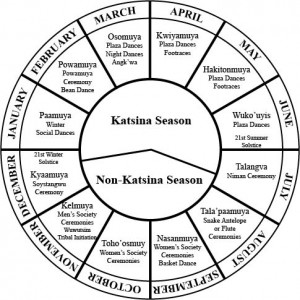
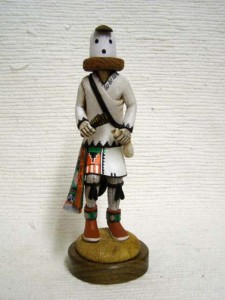
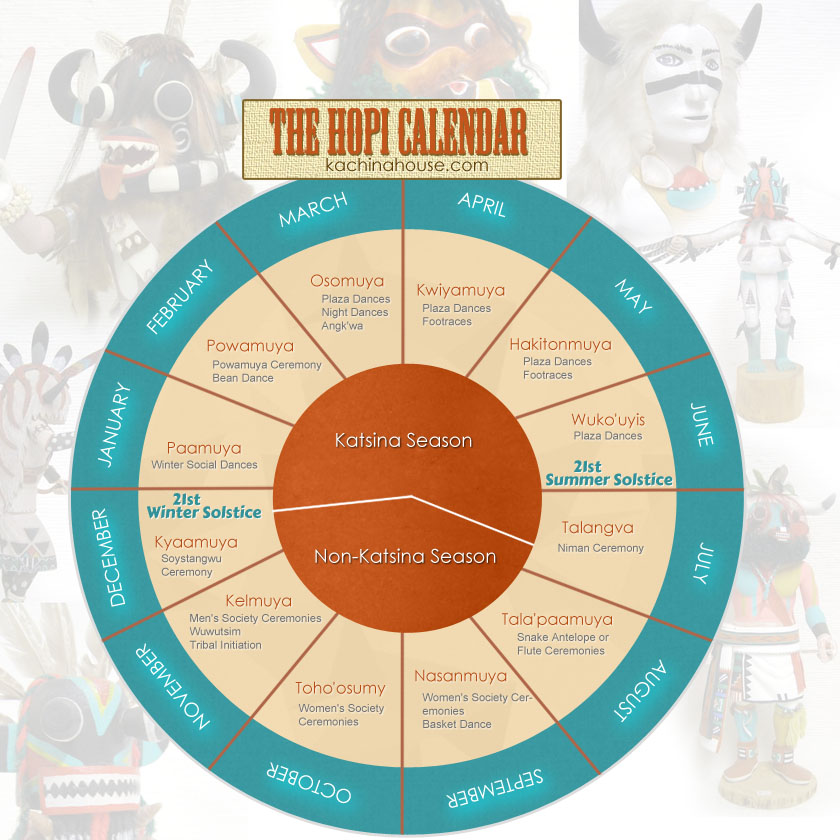
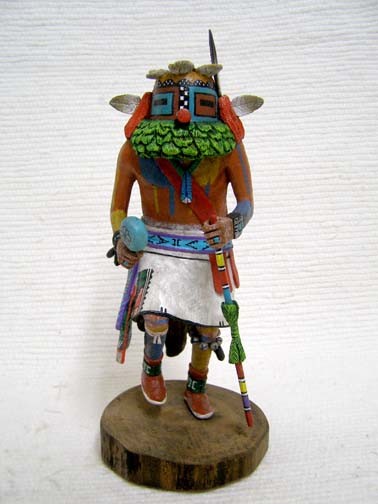
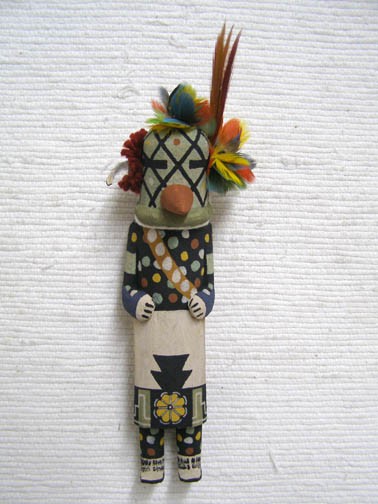

thank you
The best way to find out about the ceremonies is to visit the Hopi Cultural Center Website at http://www.hopiculturalcenter.com/ or another resource is to visit the following website and check with the tour guides. The Native guides know when the dances are and the best ones to attend. Gary Tso is a wonderful guide, there is a link to him here…http://www.arizonaguide.com/experience-and-share/featured-article/hopi-guide-extraordinaire
You could also phone him directly at 928-734-2567. The most specacular Bean Dance will be held at Hotevilla……
Could you tell me if any first Mesa villages are dancing Feb 15 weekend 2014 ? and if it is open? Would like to see Walpi’ s Bean dance.. or if not, When is Oraibi dancing Powamuya?
I can’t tell you when the dances are happening, for sure. The best way to find out about the ceremonies is to visit the Hopi Cultural Center Website at http://www.hopiculturalcenter.com/ or another resource is to visit the following website and check with the tour guides. The Native guides know when the dances are and the best ones to attend. Gary Tso is a wonderful guide, there is a link to him here…http://www.arizonaguide.com/experience-and-share/featured-article/hopi-guide-extraordinaire
You could also phone him directly at 928-734-2567. The most specacular Bean Dance will be held at Hotevilla. Gary should know the dates of the dances by now. I believe they are set, Hotevilla will happen in just a few weeks.
Hello I wish to visit the lands of the Hopi people and I would like a guide. I can not go til april-may. Im interested in ceremonys and in ancient sites .
thank you robin
Hi Robin…there are several guides and ways to approach visiting Hopi. The Cultural Center on 2nd Mesa is a wealth of information on the ceremonies and dances. You will be coming at a good time as far as dances that are open to the public. There are two individuals we recommend.
Hopi Land Tours, the Left Handed Hunter Tours…contact Gary Tso at 928-734-2567. He does all day and half day tours, cultural sites, working silversmiths, carvers and potters.
The other recommendation is Ancient Pathways Tours…contact Bertram “Tsaava” Tsavadawa at 928-797-8145. He is a Orayvi village member and does excellent tours for all day or half day
Both of our recommended tour guides will help you with attending dances.
Best of luck and we hope to see you in 2017.
Hellow,this is Reiko.
I would like to know the schedule of comming next powamuya ceremony in Hopi villages.If you have some imformation,could you give the date to us?
Thank you.
Hello Reiko
The best place to check for the ceremonies would be at the Cultural Center on 2nd Mesa….their website is
hopiculturalcenter.com
or you can call them directly at (928) 734-2401
Ask for Marilyn June (General Manager)